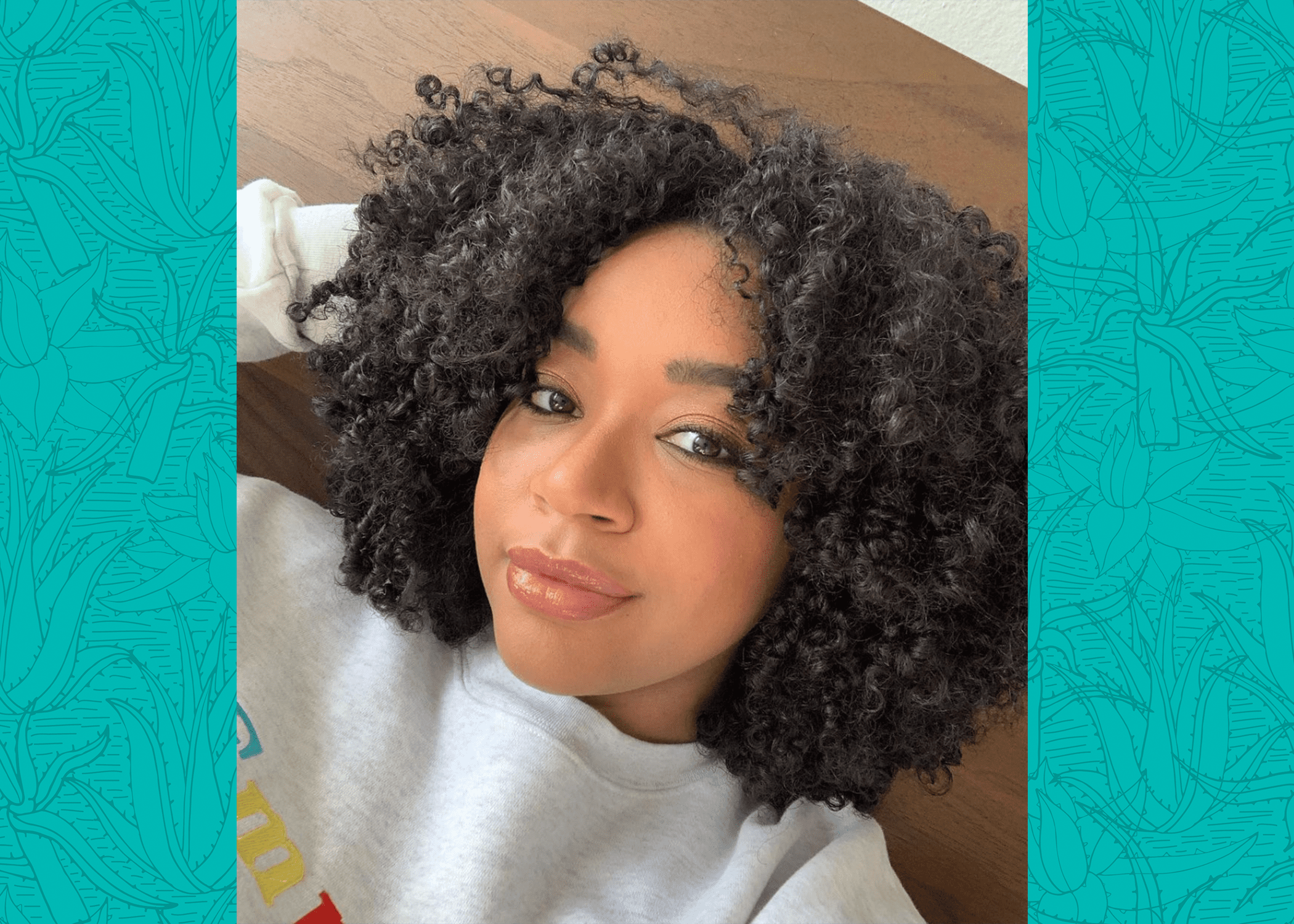When I started my natural hair journey, I quickly learned the importance of moisture. However, I later learned that moisture isn’t linear for everyone’s hair. Moisture-related education and messaging are usually geared towards looser curls being weighed down with product and tighter curls being stiffened by them. Ultimately, finding the right products and levels of moisture for your hair comes down to understanding your hair’s needs and what methods and ingredients work best for you.
To help better understand how to moisturize your natural curls, we spoke to Ana Carolina Nogueira, Ph.D. and Maui Moisture’s Global Research and Development Associate Director, who broke down everything you need to know about keeping your curls hydrated, and what to look for in products.
Meet the Expert
Ana Carolina Nogueira, Ph.D. is Maui Moisture’s Global Research and Development Associate Director. She is based in New York, New York.
Why is moisture so important for curly hair?
Moisture is essential for all hair types, but it’s vital for curly hair types that are drier by nature and more prone to breakage. “Overall, curly hair is more porous and contains fewer lipids than straight hair,” Nogueira says. “Lipids are compounds naturally present in human hair and play an important role in keeping hair naturally moisturized.” When curly hair is moisturized, strands appear shinier, more defined, and less frizzy.
Nogueira says that products play an essential role in hydrating, in addition to adequately moisturizing your hair with water. “By applying adequate cosmetic products, it is possible to deposit ingredients on hair that keep it moisturized, helping strengthen the fibers and keep it protected from damage,” she says.
What are some common misconceptions about moisture and curly hair?
:max_bytes(150000):strip_icc()/39_Kellie_Mayrui_Pool_Group_0044_NA-1ab76159118240b598e244f47786ddd4.jpg)
:max_bytes(150000):strip_icc()/ScreenShot2022-06-09at10.38.32PM-7450d487797e4bd7b7aded2bd1519a8f.png)
:max_bytes(150000):strip_icc()/ScreenShot2022-06-09at11.11.02PM-d323543727dd4e7ba830ebad7f9bb1cf.png)
:max_bytes(150000):strip_icc()/ScreenShot2022-06-09at11.11.02PM-d323543727dd4e7ba830ebad7f9bb1cf.png)
Maui Moisture
Nourish & Moisture + Coconut Milk Combing Cream
$6.97-$9.79
Do you need different products based on your curl type?
It’s important to note that hydration isn’t the same for all curl types. Some people might need more moisture more frequently, while others may be able to go more extended periods without replenishing strands. Porosity, which is your hair’s ability to retain or repel moisture, plays a massive role in your moisture needs. “Slightly curly hair may be less porous than coily hair, which means that wavier hair can be treated with less moisturizing products than coily textures,” Nogueira explains. “It’s also important to consider habits like washing, styling, and chemical (or heat) treatments.”
Final Takeaway
Ultimately, it’s important to remember that hair care isn’t one-size-fits-all. Many factors, including your styling habits, lifestyle, and even climate, can impact your hair’s moisturization. Still, building a routine of products packed with nourishing ingredients, like aloe vera, will help your hair look and feel its best.
Featured Video










